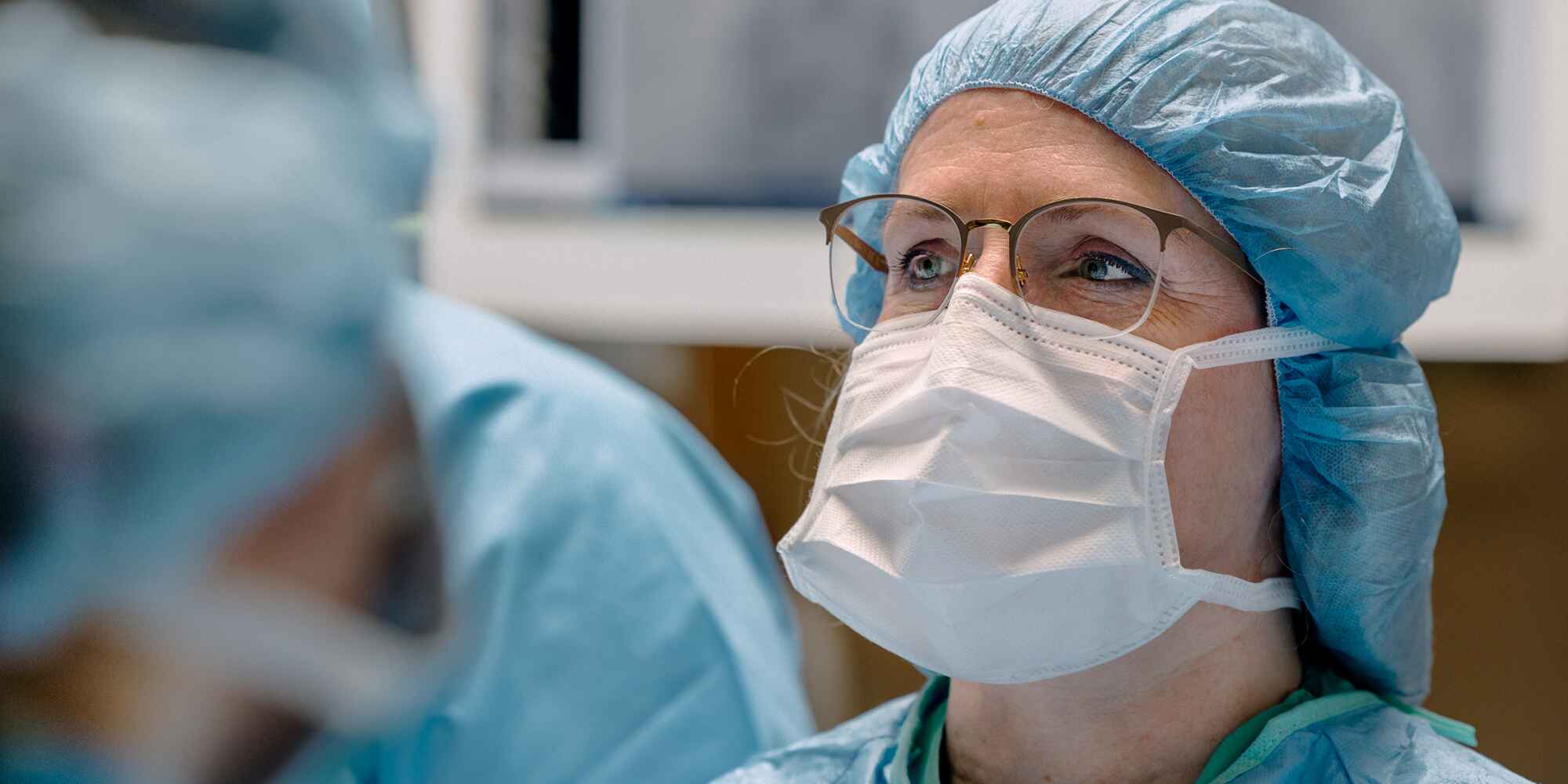Coronary Artery Bypass Graft
Coronary artery bypass graft is a surgical procedure that restores blood flow to the heart. St. Peter’s Health Partners delivers a level of care you might not expect to find in community settings such as ours. We use leading methods and exceed national safety and quality standards.
What is Heart Bypass Surgery?
Coronary artery bypass graft (CABG), also known as heart bypass surgery, is for severe narrowing or blockages in the coronary arteries. CABG uses a healthy artery from another area of the body to reroute blood flow. Some people need bypass surgery on more than one artery.
Heart bypass surgery can lower your risk of a heart attack.
If you are experiencing a heart attack, the procedure restores
blood flow, improving your chances of survival.
Why Choose St. Peter’s Health Partners for CABG Surgery?
You receive services from highly skilled heart surgeons, some of whom have decades of experience. Many of our experts also completed advanced fellowship training in heart surgery. We perform a high volume of CABG surgeries every year at St. Peter’s Hospital, successfully managing small details that lead to exceptional outcomes. Highlights of our program include:
- National Recognition: Our commitment to heart bypass surgery excellence has earned our program “high performing” status from U.S. News & World Report.
- Hybrid Procedures: Our hybrid operating room includes technologies that enable heart surgeons and other specialists to work together. In addition to CABG, you may undergo heart valve surgery or aortic disease repair. This approach enables us to care for patients with complex medical needs.
- Comprehensive Treatment: We offer more of the services you need to reclaim wellness. After heart bypass surgery, you recover in our award-winning cardiac critical care unit at St. Peter’s Hospital. And our nationally recognized outpatient cardiopulmonary rehabilitation program helps you safely transition back to daily life.
Is Heart Bypass Surgery Right for Me?
CABG may be appropriate if there is significant narrowing in one or more arteries that does not respond to nonsurgical therapies. Bypass Surgery is also for people with heart attack symptoms, which include:
- Chest Pain
- Shortness of Breath
- Cold Sweats
- Lightheadedness
- Nausea and Vomiting
- Unexplained Pain in Your Arm, Shoulder, Back, or Jaw
- Weakness or Unusual Tiredness
If you think you are having a heart attack, dial 9-1-1. Do not attempt to drive yourself to the hospital.
Coronary Artery Bypass Graft: What to Expect
- You receive medication (general anesthesia) to put you to sleep and temporarily block sensation.
- We make small incisions in your chest, leg, or arm to remove a section of a healthy artery or vein.
- Surgeons then access your heart through an incision in your chest.
- You go on a heart-lung bypass machine (extracorporeal membrane oxygenation or ECMO). The machine takes over the work of your heart and lungs so that the surgeon can operate on the heart while it is at rest.
- We attach the blood vessel to points before and after the blockage, creating a healthy artery for blood to flow through.
- Surgeons may place wires near your heart so you can use a temporary pacemaker if there’s an abnormal heart rhythm during recovery. A pacemaker is a tiny device that regulates electrical activity in your heart and controls your heartbeat.
- We complete the procedure by restarting your heart, taking you off the ECMO machine, and closing the incisions.

